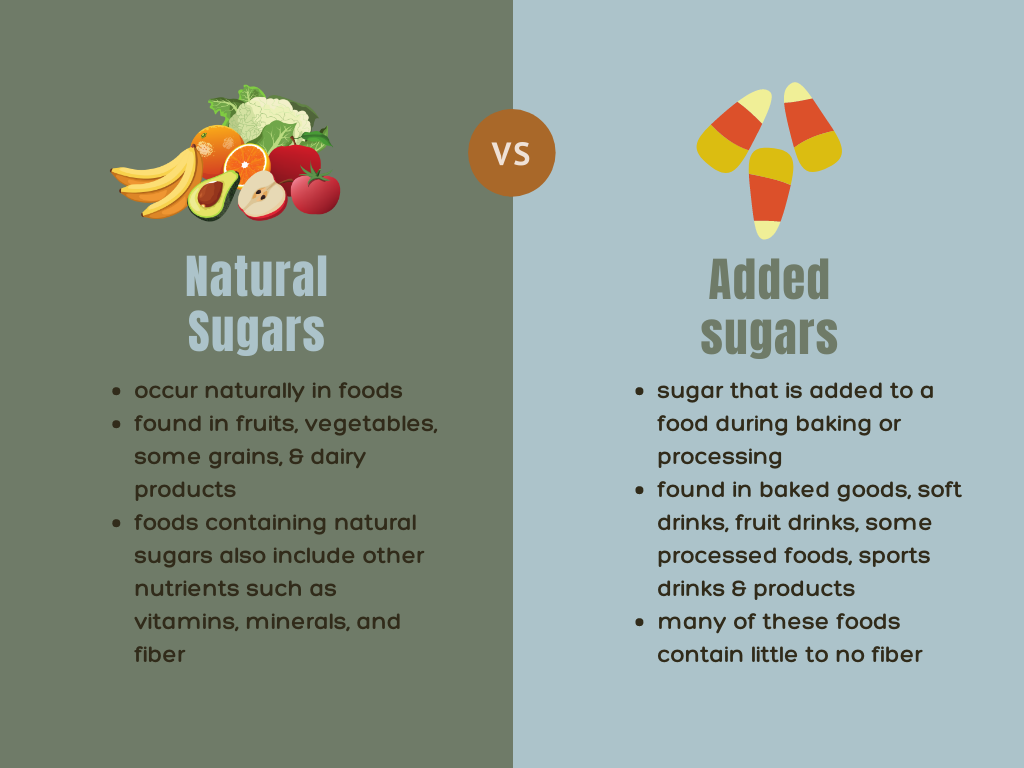What's the Deal with Sugar?
What have you heard about sugar?
As an RD, I’ve heard it all. Clients who avoid eating bananas because they are “high in sugar”. Clients whose coaches tell them to “avoid all sugar” while in season. Clients who will only use honey or agave syrup, never table sugar, because it’s “healthier”.
There are many misconceptions about sugar. I’d like to clear those up in the post, as well as provide a guide to sugars for athletes.
First of all, what is sugar?
Sugar is simply a carbohydrate. Carbohydrates (as well as proteins and fats) are macronutrients, meaning that they are nutrients that are needed in large quantities in our bodies. Carbohydrates provide our body with energy. In fact, they are the preferred energy source for the body. When we eat carbohydrates, our body breaks them down into glucose. Glucose fuels your brain, organs, and muscles.
Where are sugars found?
Sugars are found in all plant & dairy foods and drinks. Yes, bananas, carrots, potatoes, and white milk ALL have sugar. Sugars are also found in baked goods and processed foods…which brings us to the next point.
Natural Sugars vs Added Sugars
There are two types of sugars. Those that are found naturally in foods and those that are added to foods.
Natural sugars occur naturally in foods. They are found in fruits, vegetables, some grains, and dairy products. These foods also have naturally occurring vitamins, minerals, and fiber. As a result, these foods lead to greater satiety. They are considered to be nutrient-dense foods. The fiber in these foods helps you to digest the sugar slowly, meaning that your blood sugar level won’t spike in the same way as it would if you ate a handful of candy. There is no need to limit the amount of natural sugars in your diet!
On the flip side, added sugars are those that are added to a food product during baking or processing. They are found in baked goods, soft drinks, fruit drinks, some processed foods, sports drinks, and sports products like gels, chews, and bars. Many (but not all) of these foods do not contain other nutrients like vitamins, minerals, and fiber. For example, when you eat skittles you are not getting any fiber, vitamins, or minerals. Most of these foods would be considered calorie-dense foods, instead of nutrient-dense foods. You are more likely to experience a spike in blood sugar, and then a sugar crash later on. The recommendation for the general population is to keep added sugar intake to less than 10% of total calories. Excessive intake of added sugars is linked to a greater risk of type 2 diabetes and heart disease.
Are some added sugars “healthier” than others?
Nope. Added sugars are added sugars. Honey, raw sugar, molasses, agave syrup, table sugar, high fructose corn syrup (yep, I said it!) and maple syrup are all metabolized by the body in the same way. All of these types of sugars are made up of glucose and fructose (the ratios of these two sugar molecules differs). The bottom line is that it’s best to limit added sugar intake from any source.
Are recommendations different for athletes?
Athletes have unique nutritional needs. Right before, during, and immediately following intense or prolonged exercise, quickly digested carbohydrates provide your body with ready-to-use energy. While a banana can provide that energy, a product with added sugars works just as well (or better, for some individuals). Sports drinks, gels, chews, and bars contain added sugars. These added sugars help to provide and sustain energy for athletes. That’s why Gatorade is provided at half-time during a soccer game and why endurance athletes carry gels with them on long runs and rides.
Outside of your training window (right before, during, and right after training), added sugar intake should be limited for athletes just as it should be limited for the general population. It’s true that athlete’s need more carbohydrates than sedentary folks, but it’s best to eat foods with naturally occurring sugars outside of your training window.
It’s best to work with a sports dietitian to help you understand how many carbohydrates you need, when to consume them, and where products such as gels, chews, and sports drinks (or Swedish fish or fruit snacks!) may fit into your diet. A sports dietitian will give you individualized recommendations to enhance athletic performance.
Hi, I’m Anna!
Welcome to the Nutrition with Anna blog! Sharing recipes, sports nutrition tips, & inspiration to eat foods that fuel your lifestyle and athletic goals without rules or restrictions.


